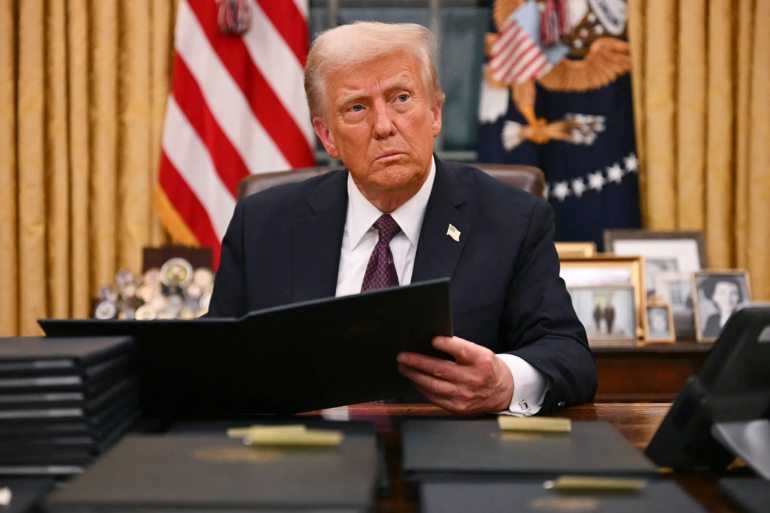A fourth federal judge has blocked President Trump’s executive order aimed at ending birthright citizenship for the children of parents who are in the U.S. illegally. On Feb. 13, U.S. District Judge Leo Sorokin of the U.S. District Court for the District of Massachusetts granted a preliminary injunction preventing the president’s order from taking effect pending a trial.
The ruling came in response to a lawsuit filed by a group of 19 states and led by the attorneys general of New Jersey, Massachusetts, and California, along with a civil complaint by anonymous Doe plaintiffs. In his 31-page ruling, Sorokin recognized the plaintiffs’ claims of irreparable harm as a result of the executive order.
“The loss of birthright citizenship — even if temporary and later restored at the conclusion of litigation — has cascading effects that would cut across a young child’s life (and the life of that child’s family), very likely leaving permanent scars,” wrote U.S. District Judge Leo Sorotkin.
The ruling comes just three days after U.S. District Judge Joseph Laplante in New Hampshire blocked the executive order and follows two other rulings in Seattle and Maryland the previous week.
U.S. District Judge John C. Coughenour in Seattle blocked Trump’s order until the lawsuits brought before the court are resolved. The ruling comes after Coughenour issued a 14-day temporary restraining order in January and called Trump’s order “blatantly unconstitutional.”
The Seattle and Maryland rulings involved separate but similar cases involving pregnant women whose soon-to-be-born children would be affected by the birthright citizenship order.
U.S. District Judge Deborah Boardman in Maryland issued a nationwide preliminary injunction in response to a lawsuit filed by immigrant rights advocacy groups CASA and the Asylum Seeker Advocacy Project. The injunction halts the order from taking place until the legal process plays out.
“The U.S. Supreme court has resoundingly rejected the president’s interpretation of the citizenship clause,” Boardman said. “In fact, no court has endorsed the president’s interpretation, and this court will not be the first.”
Boardman’s nationwide preliminary injunction has prevented the birthright executive order from taking effect as planned on Feb. 19 until the matter is litigated. The injunctions are likely to stay in place until the matter is resolved, or a higher court intervenes.
Trump issued his 700-word executive order on Jan. 20, his first day in office. Executive Order 14160, titled “Protecting the Meaning and Value of American Citizenship,” seeks to end automatic citizenship to those born on U.S. territory to parents who are in the U.S. illegally and to those who are in the U.S. on temporary visas.
The executive order seeks to end birthright citizenship, which was established by the Fourteenth Amendment and states: “All persons born or naturalized in the United States, and subject to the jurisdiction thereof, are citizens of the United States and of the State wherein they reside.”
The Fourteenth Amendment was ratified in 1868 after the end of the Civil War and reversed the Dred Scott Supreme Court decision that found Scott, an enslaved man, was not a U.S. citizen.
President Trump’s executive order, however, claims that the Fourteenth Amendment has never extended to everyone born in the United States and states that it “has always excluded from birthright citizenship persons who were born in the United States but not ‘subject to the jurisdiction thereof.’”
President Trump’s argument rests on the ‘subject to the jurisdiction thereof’ clause in the Fourteenth Amendment, which he claims excludes children born to parents who are neither U.S. citizens nor lawful permanent residents.
The executive order was met with immediate legal challenges hours after Trump signed Executive Order 14160. Challenges have been brought by 22 attorneys general from various states in addition to groups such as the American Civil Liberties Union.
The executive order is expected to face ongoing legal challenges and will likely reach the Supreme Court.
Photo courtesy of Jim Watson.



